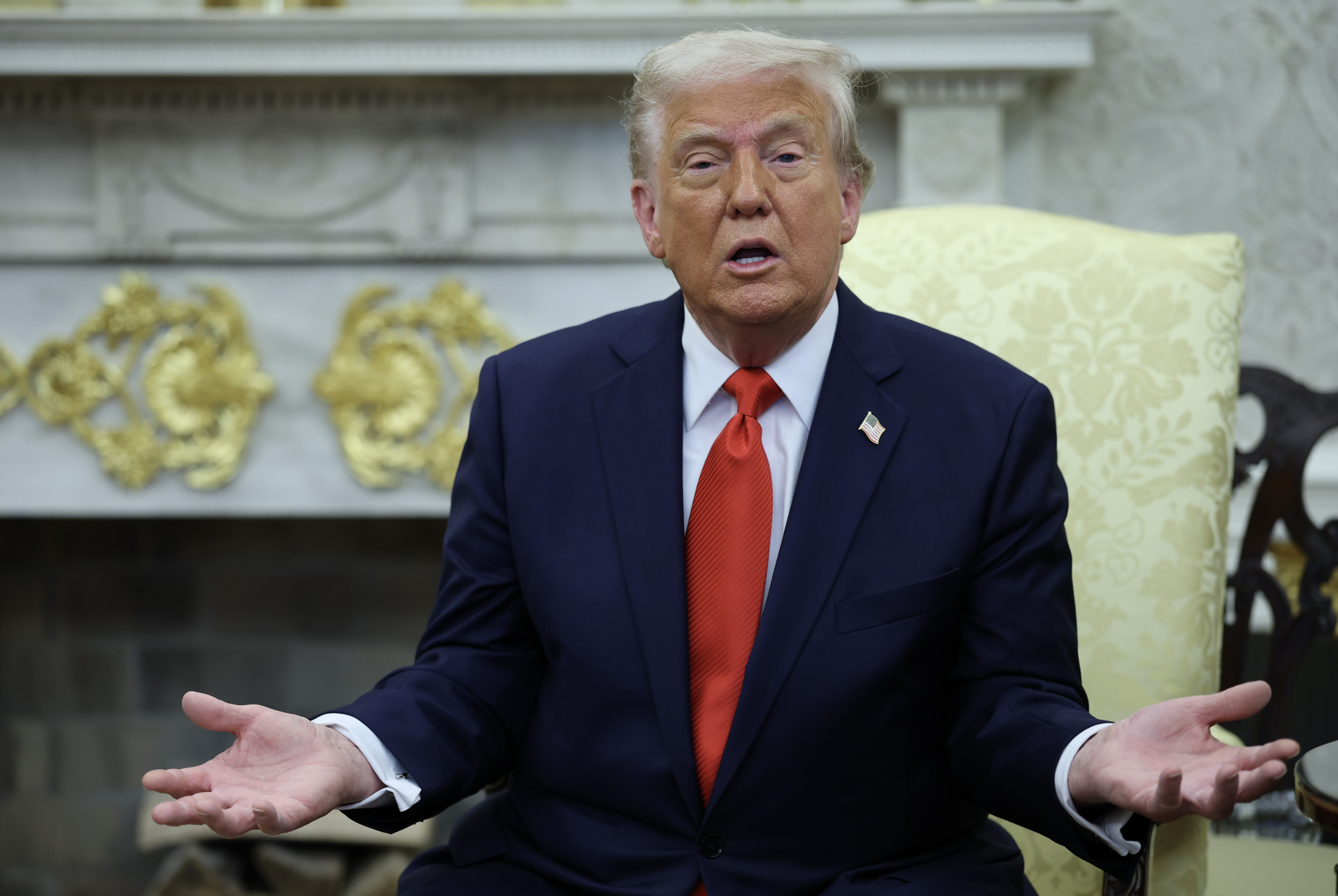
The U.S. Supreme Court issued an order early Saturday morning directing President Donald Trump‘s administration to pause deportations of Venezuelan detainees under the Alien Enemies Act (AEA) of 1798 until further notice, with conservative Justices Clarence Thomas and Samuel Alito dissenting.
With that, legal analyst Mark Joseph Stern suggested on Saturday that this represents a significant judicial challenge to presidential authority, characterizing it on social media platform Bluesky as “potentially a massive signal from the Supreme Court that it is finally prepared to go toe to toe with Trump to halt AEA deportations.”
Newsweek has reached out to the White House via email on Saturday for comment.
Why It Matters
U.S. authorities are carrying out an ongoing immigration crackdown under Trump, who has pledged to launch the largest mass deportation operation in the country’s history. Thousands of people have been detained and deported since he took office, and the administration faces several lawsuits over the matter.
The president has said most detentions and deportations would target individuals with criminal records. However, in recent weeks, there have been multiple reports of people without criminal convictions, and some with valid documentation, being detained for deportation.
With Republicans holding a slim majority in the House and Senate, the courts have arguably become the main avenue for challenging the Trump administration’s policy.
Saturday’s ruling is particularly significant since it comes from a Court with a 6-3 conservative majority, including justices appointed during Trump’s first term.
What To Know
According to Reuters, on Friday, the American Civil Liberties Union (ACLU) filed an urgent request to the Supreme Court following reports that some of the men had been placed on buses and were about to be deported.
A government lawyer said during the hearing that they weren’t aware of plans to deport the men that day, but that it could happen on Saturday.
Stern, a senior writer covering courts and the law for Slate Magazine who has reported on the Supreme Court and federal courts since 2013, described the legal battle on Bluesky as “a huge victory for the migrants here and a major defeat for Trump’s lawless effort to rush out a rendition flight before the courts could act.”
Trump invoked the AEA on March 15, targeting Tren de Aragua members, a criminal group it has designated as a terrorist organization, to deport Venezuelan men accused of having membership in the group. This is the same law used to intern Japanese, German, and Italian nationals during World War II.
On April 7, the Supreme Court ruled 5-4 that the Trump administration could use the AEA to deport alleged Tren de Aragua members, but only if judicial review could take place.
The Court specified that notice “must be afforded within a reasonable time and in such a manner as will allow them to actually seek habeas relief in the proper venue before such removal occurs.”
Earlier this month, the Court instructed the Trump administration to “facilitate” the return of Kilmar Abrego Garcia to the U.S. from El Salvador. U.S. Immigration and Customs Enforcement (ICE) said Abrego Garcia was deported last month due to an “administrative error.” White House press secretary Karoline Leavitt responded that Abrego Garcia would “never live in the United States of America again.”
Abrego Garcia, who came to the U.S. illegally, was arrested in 2019 and accused of being a member of the MS-13 gang, which the Trump administration has designated a foreign terrorist organization. Abrego Garcia denied being a member of the gang, but two judges, in separate rulings, concluded that he was, based on confidential information provided to the court. He was shielded from deportation to El Salvador because he said he would be targeted by MS-13’s gangland rivals.
Abrego Garcia lived in Maryland with his wife and children, with his family denying that he has any ties to gangs. Abrego Garcia has no criminal record in the U.S., although his wife accused him of domestic violence and obtained a restraining order against him. They have since been reconciled.
The Trump administration and Salvadoran President Nayib Bukele have said they lack the authority to bring Abrego Garcia back to the U.S.
Win McNamee/Getty Images
What People Are Saying
Legal analyst Mark Joseph Stern wrote on Bluesky on Saturday: “I think the majority that lifted [U.S. District Judge James] Boasberg’s restraining order truly believed Trump would heed its warning about due process and pause further AEA renditions until SCOTUS ruled on their legality. Instead Trump tried to sneak out migrants before courts could act. And now I think SCOTUS is pissed.”
He added: “It is SO unusual for the Supreme Court to issue an order this late at night and honestly incredible only Thomas and Alito noted their dissents. Also fascinating that SCOTUS rushed out the order before Alito could finish writing his dissent. That basically never happens! Again—majority seems pissed.”
In its ruling, the Supreme Court wrote: “There is before the Court an application on behalf of a putative class of detainees seeking an injunction against their removal under the Alien Enemies Act. The matter is currently pending before the Fifth Circuit.”
It added: “Upon action by the Fifth Circuit, the Solicitor General is invited to file a response to the application before this Court as soon as possible. The Government is directed not to remove any member of the putative class of detainees from the United States until further order of this Court.”
What Happens Next?
Saturday’s ruling temporarily suspended deportation rather than banning it outright. This leaves open the possibility that deportations could proceed if the Trump administration provides further legal assurances that satisfy the Court’s requirements for judicial review.
The response from the administration will likely determine the next steps in this ongoing legal battle between executive authority and judicial oversight.
